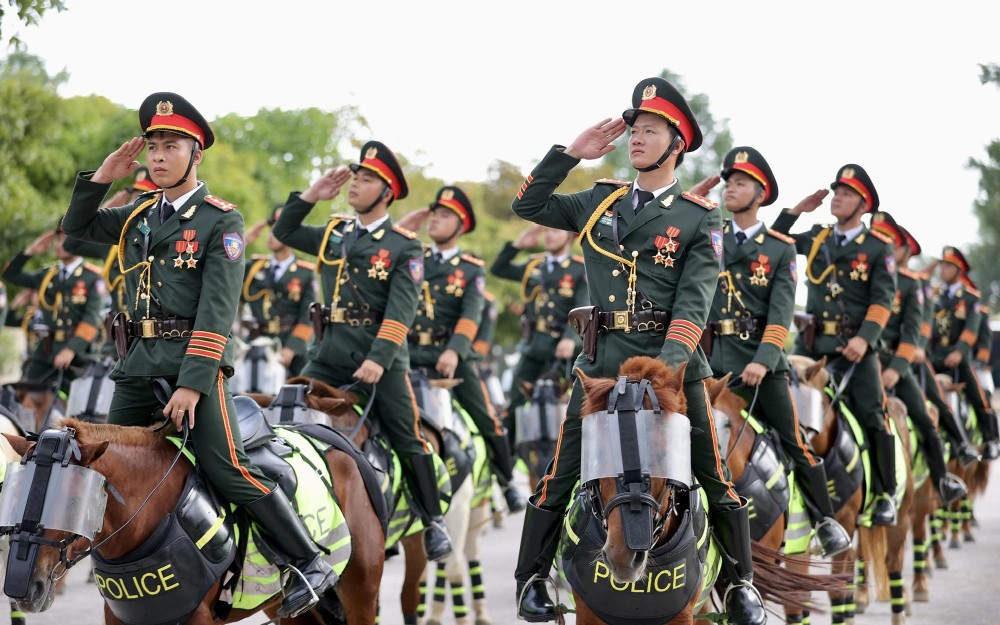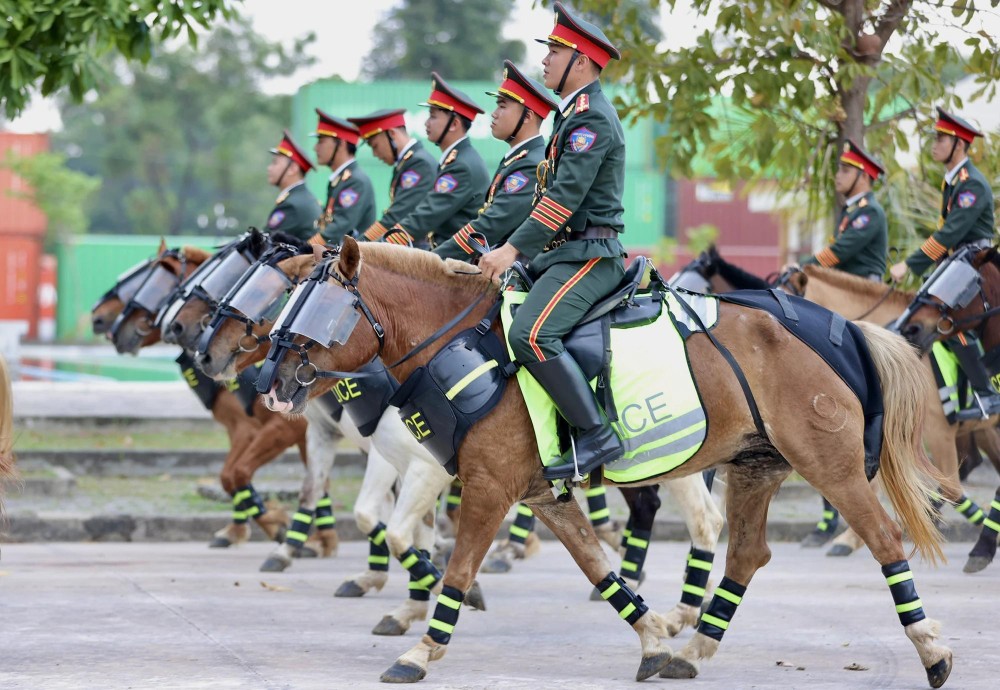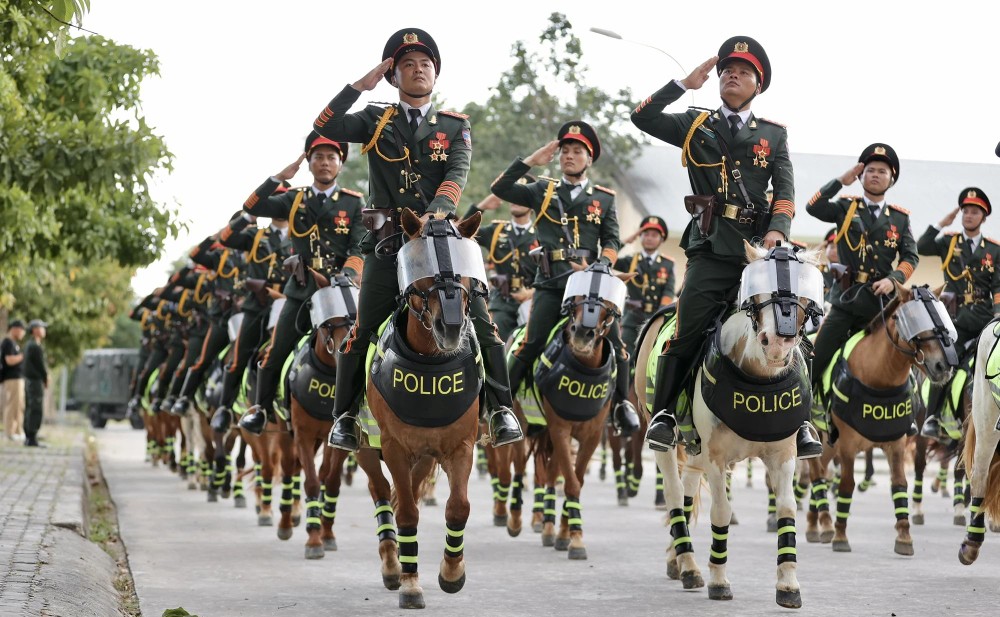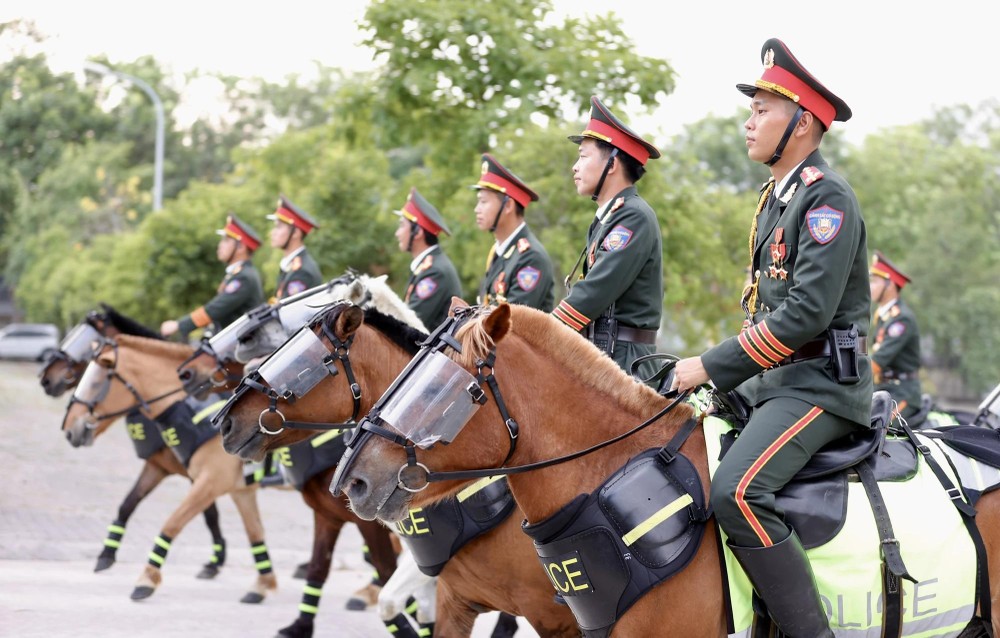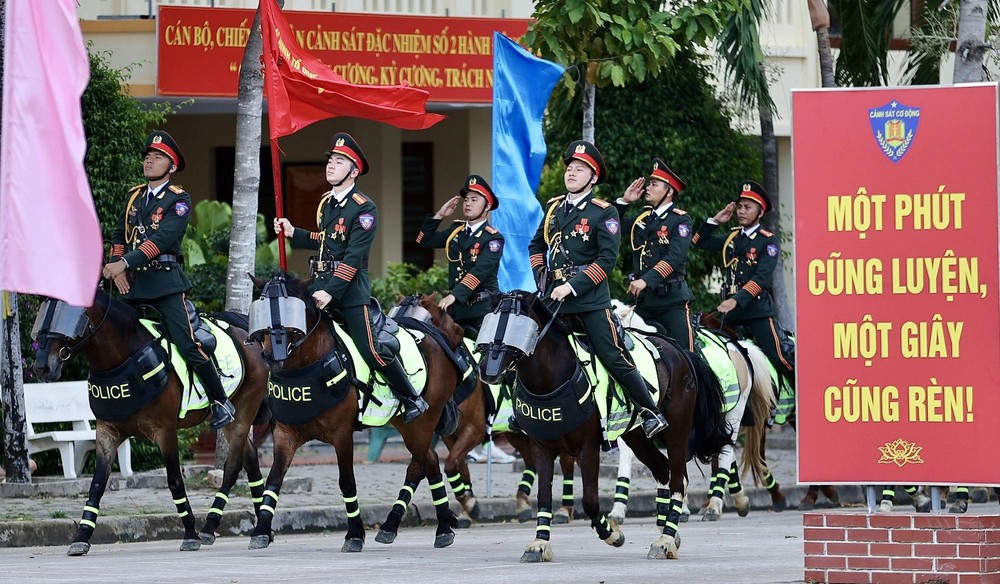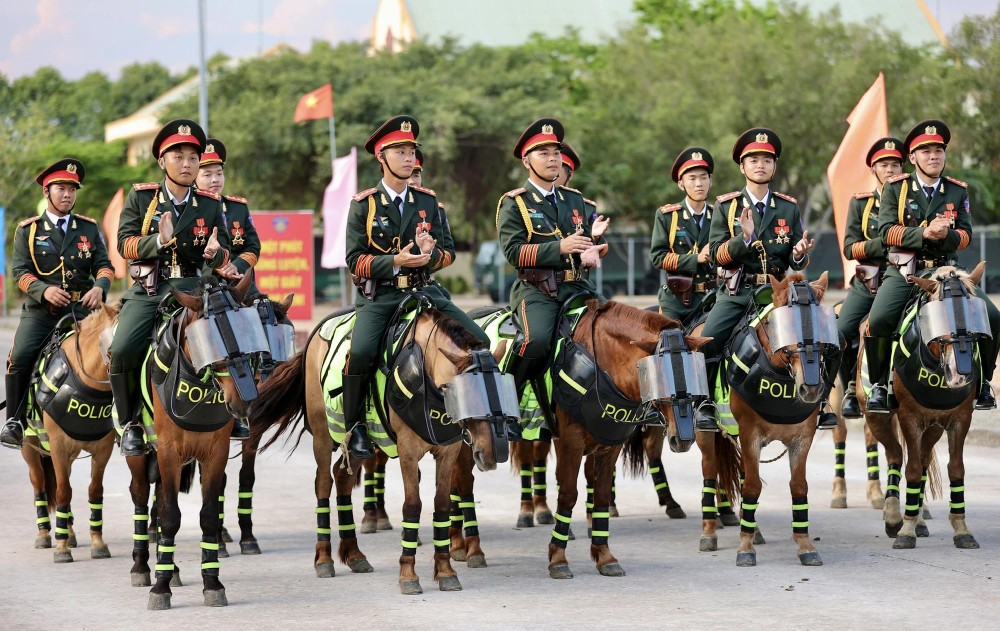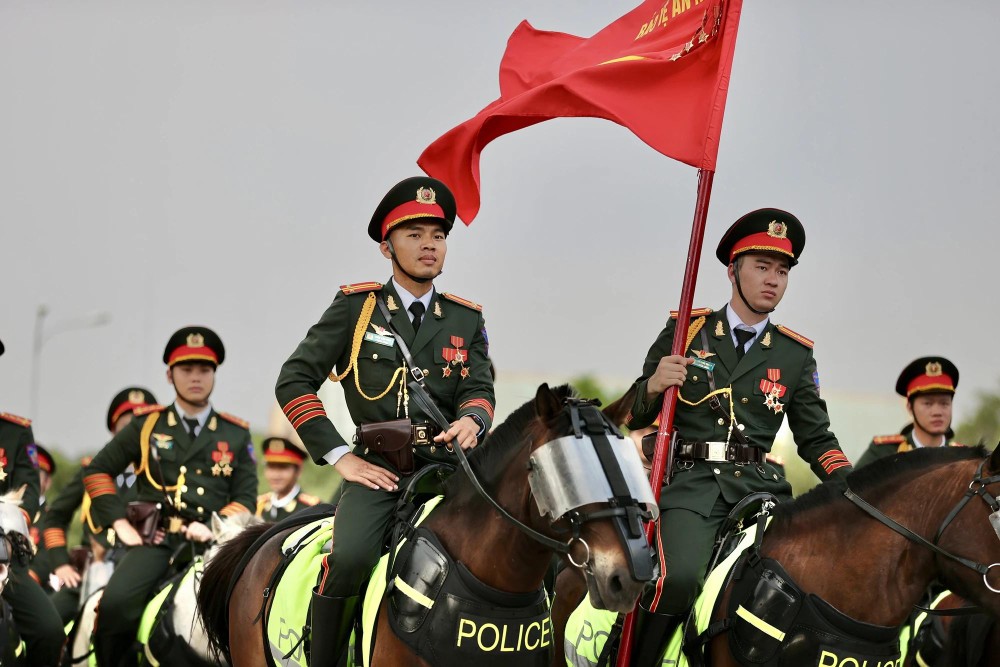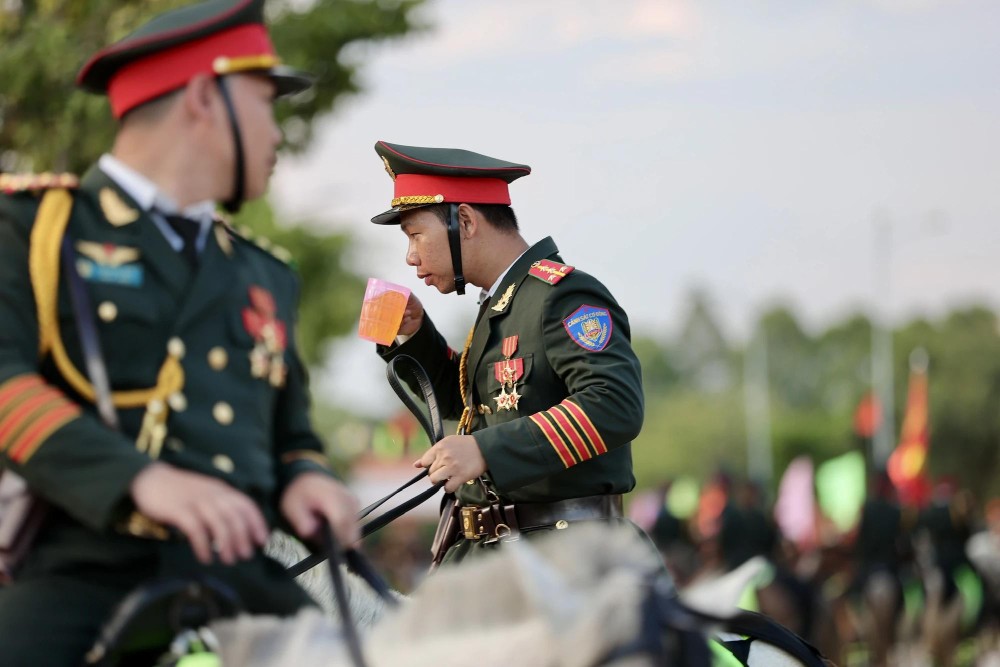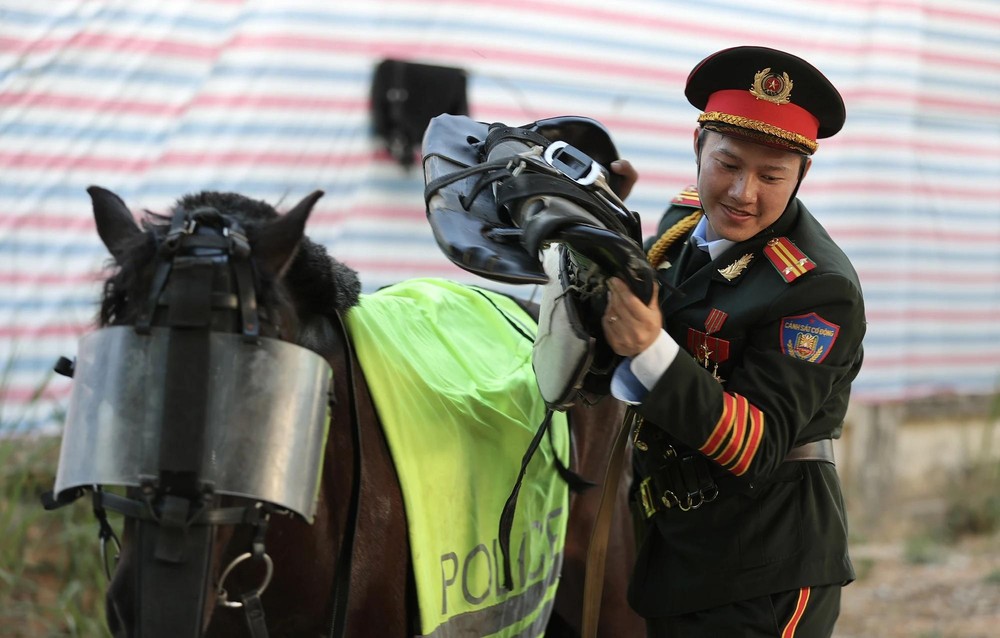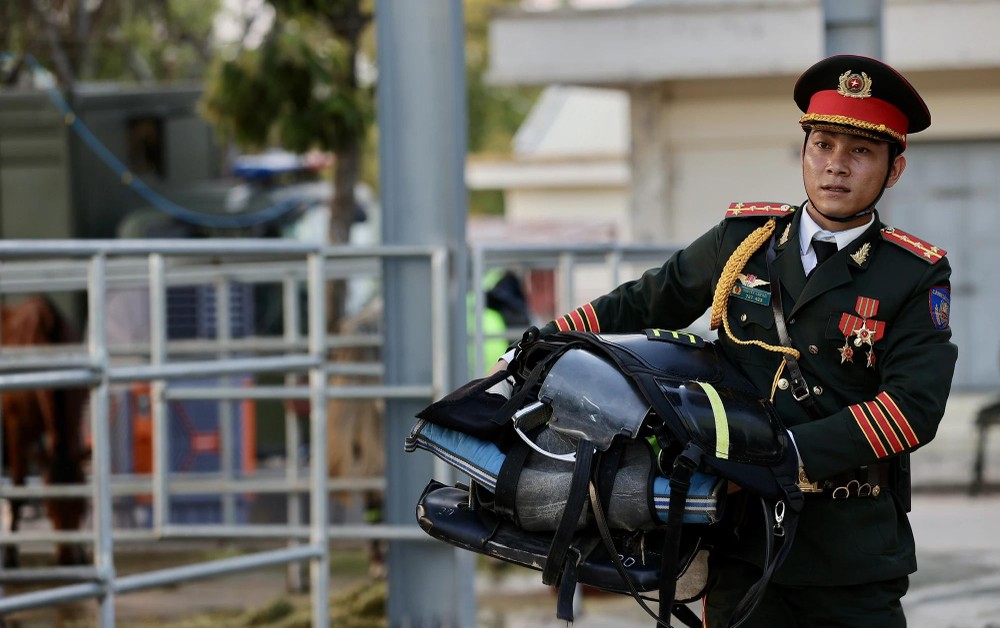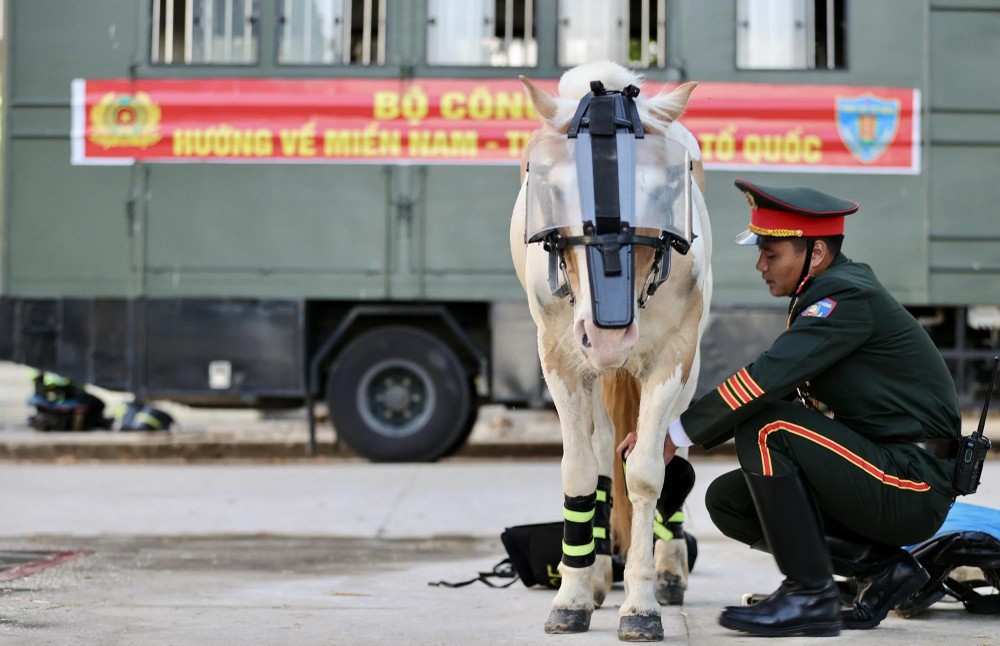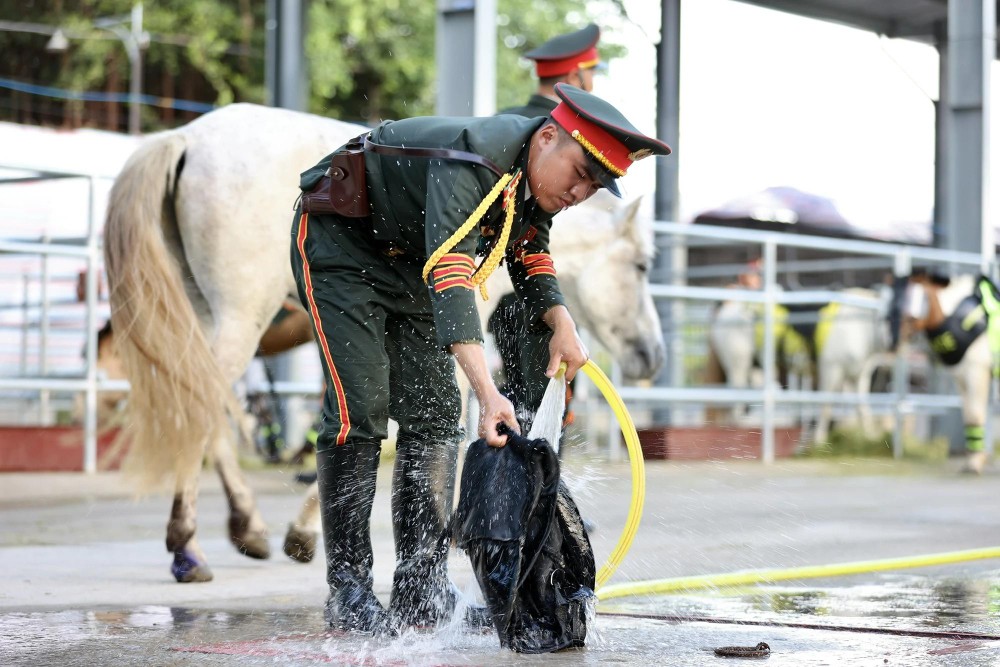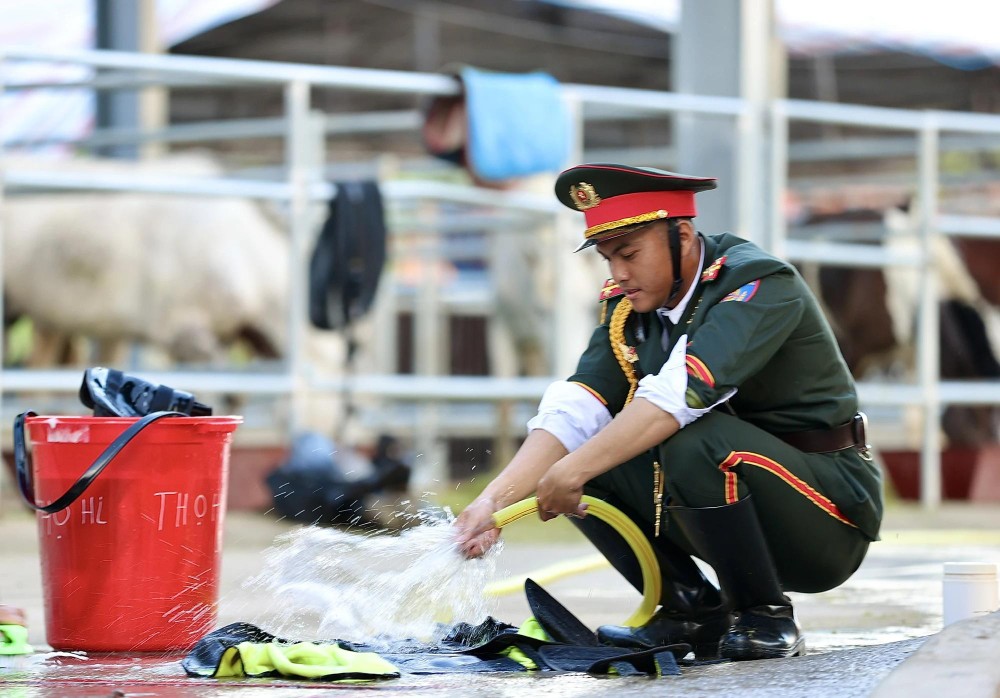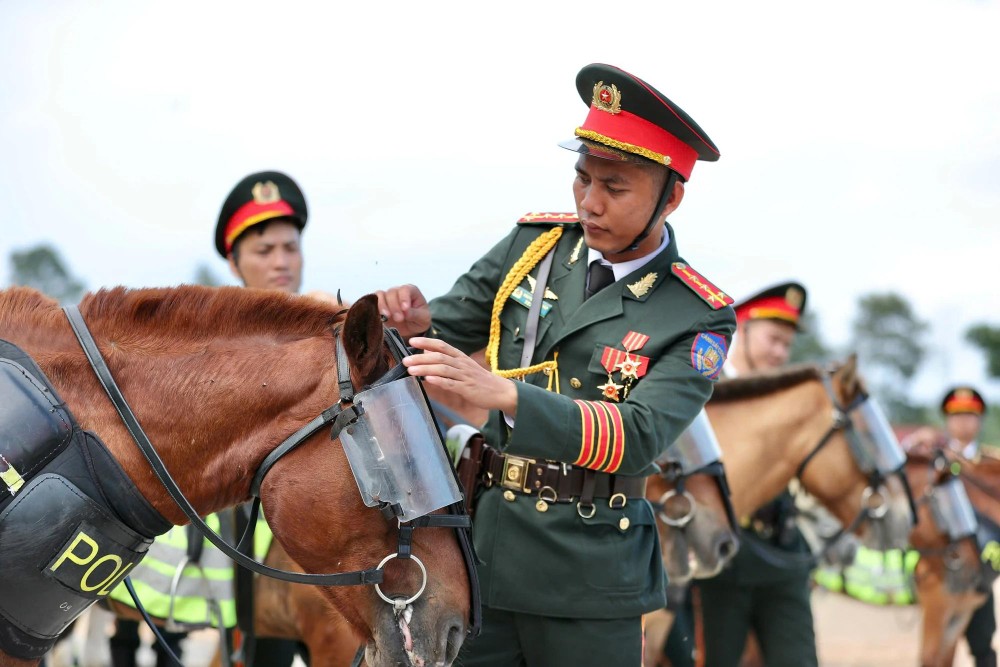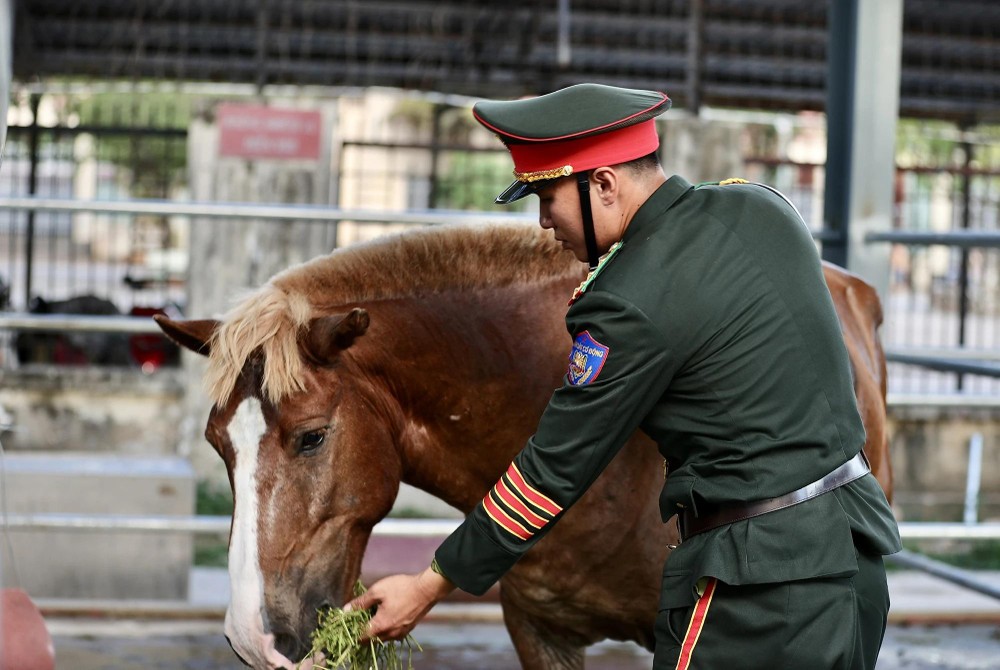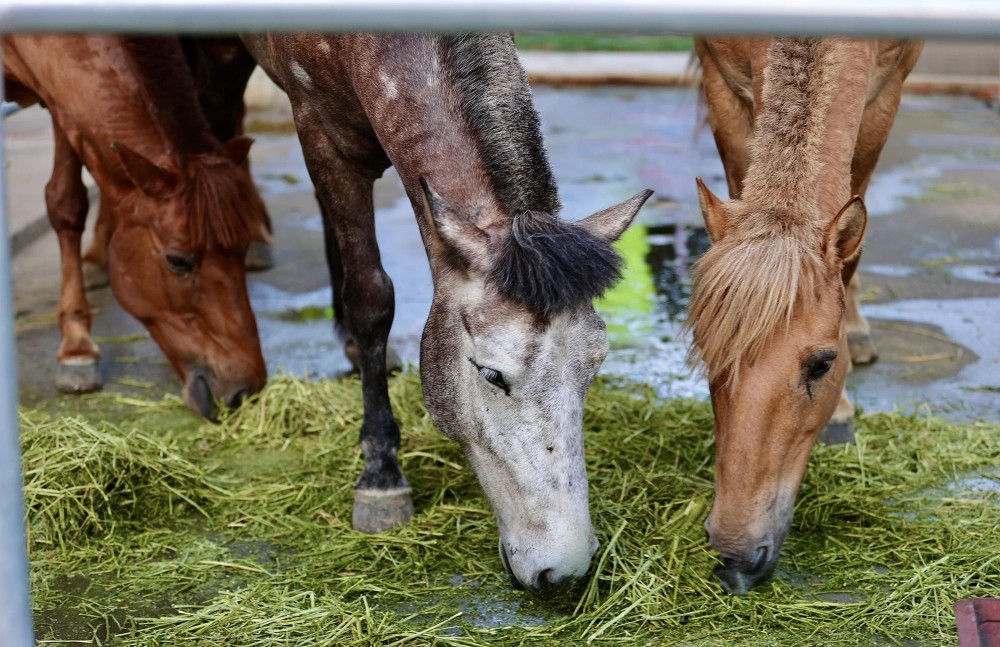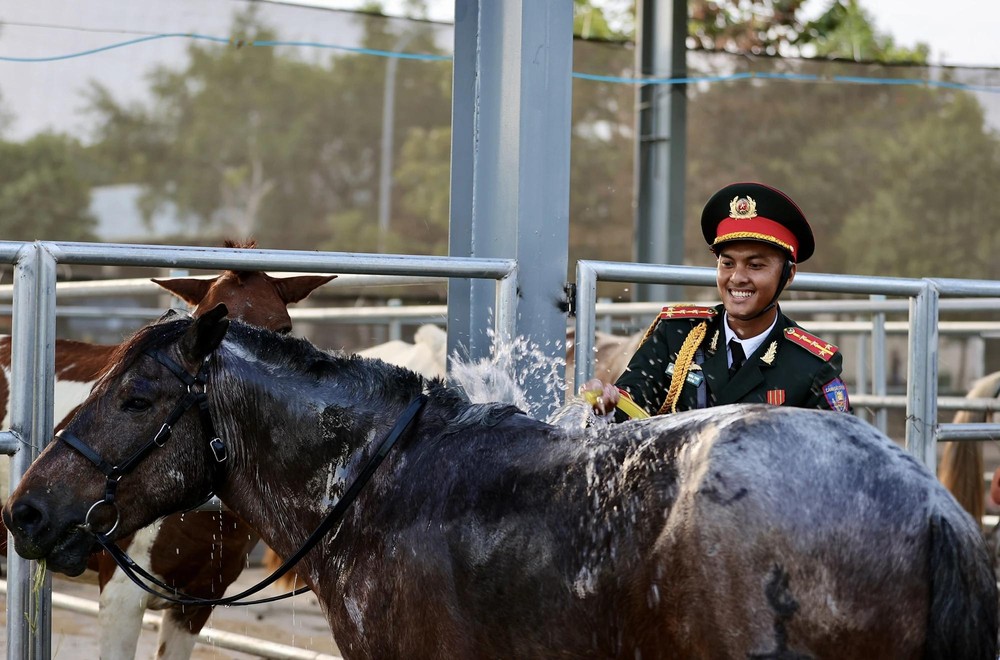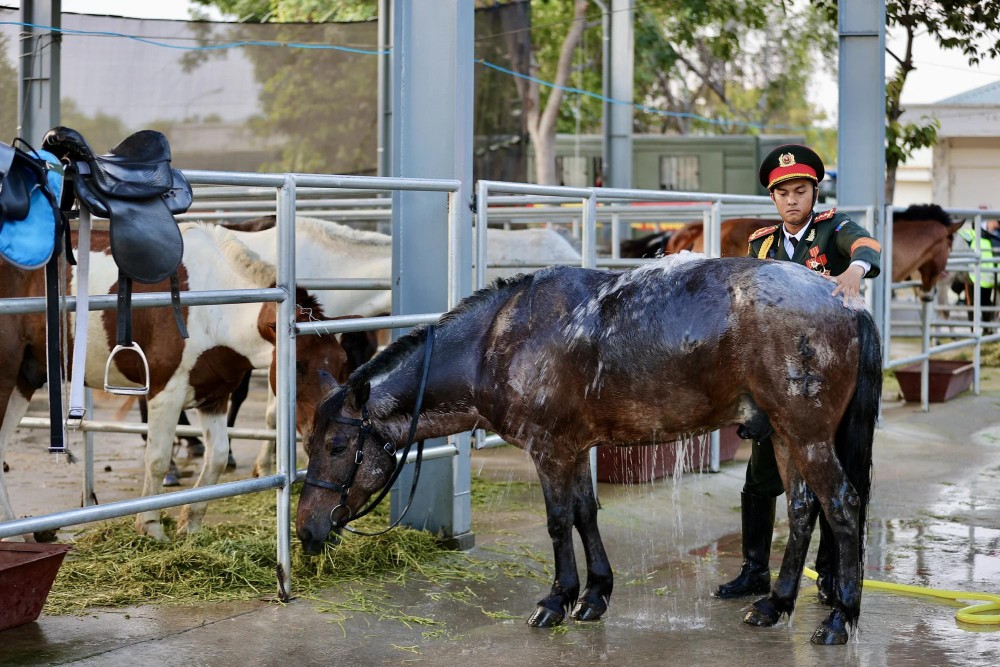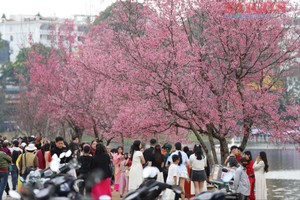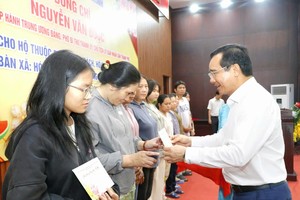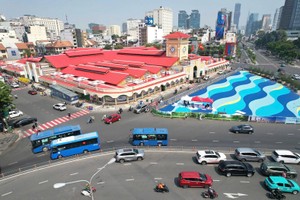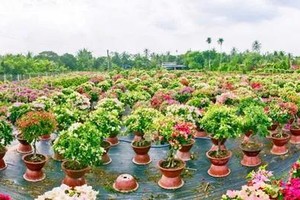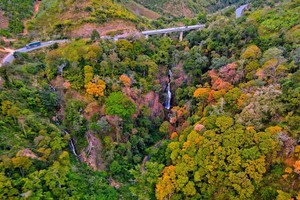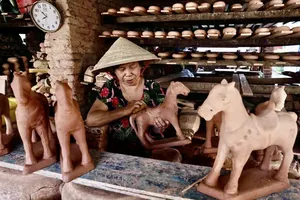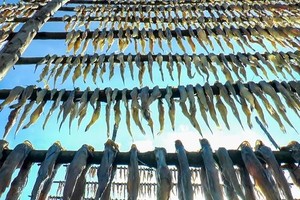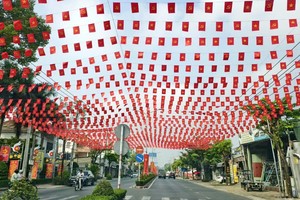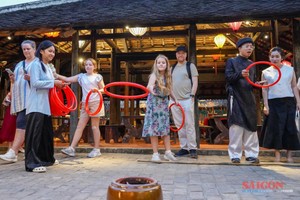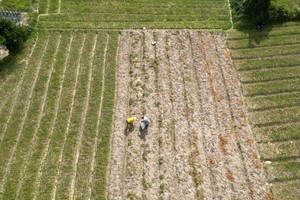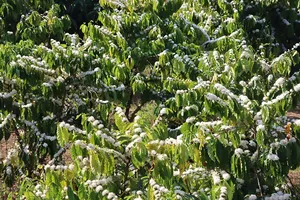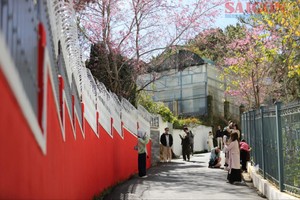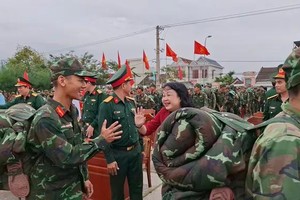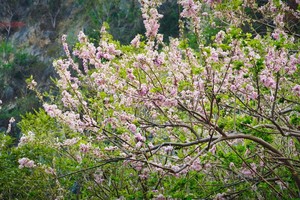The Elite Police Force No. 2 stationed in Long Thanh My Ward of Thu Duc City and the mounted squadron of the Mounted Mobile Police Division (K02 - Special Operations Command under the Ministry of Public Security) is entering the intensive preparation phase, poised for the procession and ceremonial march commemorating the 50th anniversary of the Liberation of the South and National Reunification (April 30, 1975 - April 30, 2025).
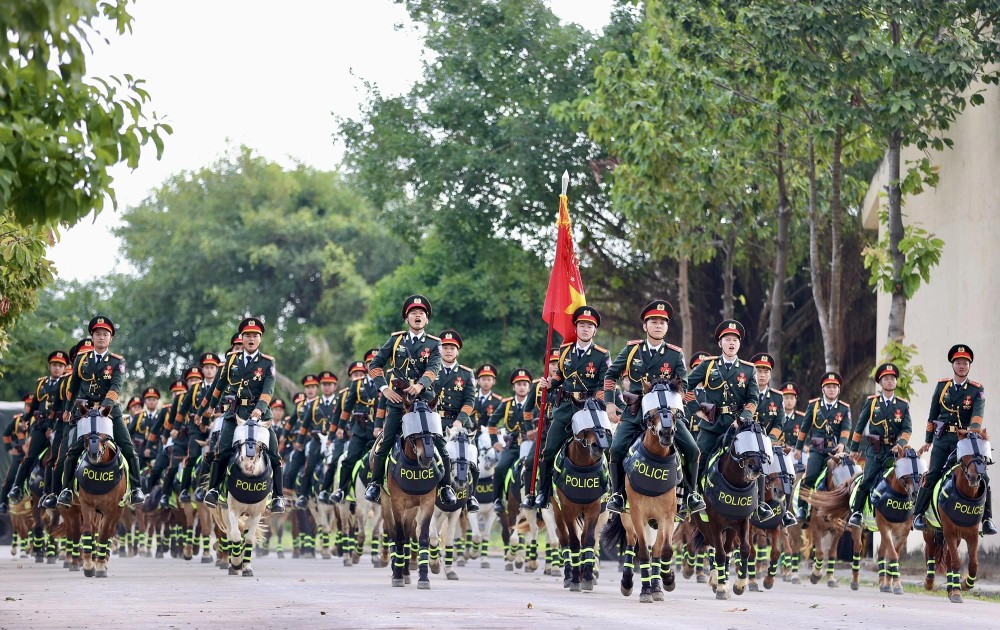
According to Senior Lieutenant Colonel Le Sy Ha, member of the Parade and March Command under the Ministry of Public Security and Commander of the Cavalry Mobile Police, transporting horses from the North to the South presents significant challenges, particularly given the climatic differences between the Northern and Southern regions.
To maintain the cavalry force's optimal physical condition and morale, the training program follows a structured, progressive approach. Initial stages focus on acclimatization to the new environment and climate, followed by systematic training based on the approved content, curriculum, and lesson plans.
Senior Lieutenant Colonel Le Sy Ha highlighted the effectiveness of their training, noting that the current smooth coordination between the soldiers and horses – their mutual understanding – proving soldiers' meticulous and methodical approach.
Each horse in the cavalry formation weighs between 300 and 400 kilograms and is fully equipped with body armor, with particular reinforcement at the leg and knee joints to ensure safety during training and operations.
The selected horse breed is known for its exceptional endurance, resilience, and strong discipline. According to Senior Lieutenant Colonel Le Sy Ha, these horses are highly perceptive and capable of responding flexibly to their riders' commands. Perfect teamwork between horse and rider comes from hard, regular training. They practice every movement until they are in perfect sync.
According to Major Pham Minh Tuan, Deputy Head of the Veterinary Team, Mobile Police Cavalry, equine maintenance follows rigorous protocols, guaranteeing optimal nourishment, wellbeing and physical condition for each specimen. He disclosed that horses are fed Alfalfa hay; in addition, the diet also includes mixed bran supplemented with starch, vitamins, minerals and trace elements. Early in the morning before training or before performing tasks, horses will be fed more bran to ensure energy. Moreover, horses are bathed 1-2 times a day, usually in the afternoon after training or before and after performing tasks. This helps them relax, reduce body stress and maintain hygiene.
Major Pham Minh Tuan stated that horses participating in ceremonies, parades, marches, or critical assignments are carefully selected and maintained under a specialized care regimen to ensure their optimal physical condition. Newly acquired horses, particularly those not yet acclimated to hot weather, are closely monitored, allowing timely adjustments to their care as needed.
